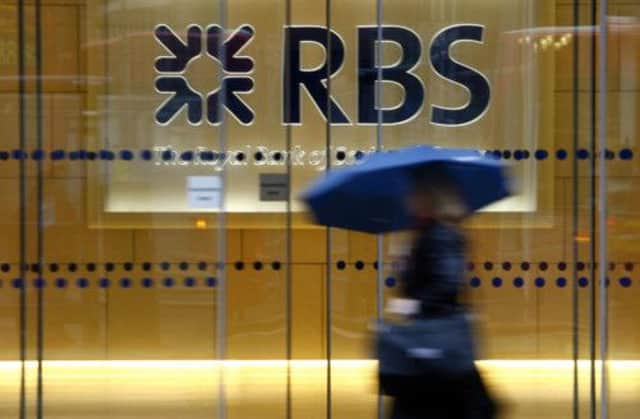RBS credit outlook cut from stable to negative


It was among a number of bank’s reduced from stable to negative because of industry failures in areas including money laundering and payment protection insurance.
The announcement came as Vince Cable urged the Treasury to slow down its plans to sell off the bailed-out Royal Bank of Scotland.
Advertisement
Hide AdAdvertisement
Hide AdThe Business Secretary said the sell-off was “not in any sense urgent”, indicating his concerns that Treasury ministers are acting too quickly on the issue.
The downgrade will affect RBS’s ability to borrow and could impact on its share value.
However, the banking giant attempted to play down the significance of the move.
In a statement, it said: “We note S&P’s decision to place the UK banking sector as a whole on negative outlook and the resultant change of outlook on RBS’s long-term rating.
“S&P has specifically highlighted that this is an industry action and does not reflect a deterioration of RBS’s individual creditworthiness.”
Virgin Money Plc and Yorkshire Building Society were also downgraded to negative from stable.
Mr Cable’s comments appear at odds with the view held by David Cameron, who has said several times this year that the bank, more than 80 per cent-owned by the government, should be returned to private ownership as soon as possible.
The difference of opinion between the Lib Dem minister and the Conservative Prime Minister was interpreted as a sign of more tensions within the UK coalition government.
Advertisement
Hide AdAdvertisement
Hide AdIn an interview, Mr Cable also said the UK government should not give up on its plans to split up RBS and Lloyds Banking Group to bring back competition in the sector. He said. “From a policy point of view, it would be better if we had more competing institutions.”
Mr Cable insisted that breaking up the banks would not necessarily interfere with a sell-off. He said: “You could sell it [RBS] off in bits and create more competition. There is a point at which the two issues – competition and ownership – intersect.”
Mr Cable also expressed concerns that the RBS stake
could be sold off at a loss to taxpayers.
Earlier this month, the RBS share price was £3, well below the £5 paid by the UK government in 2008.
Yesterday, the SNP Treasury spokesperson Stewart Hosie MP reacted to Mr Cable’s remarks, saying: “The most important thing, if and when the UK government sells the Royal Bank of Scotland, is that taxpayers are not left out of pocket.
It is far better that the UK government takes its time, if it means getting it right.”
Mr Cable’s comments follow reports at the beginning of May that RBS and the part-state-owned bank Lloyds could be sold before the UK general election, at share prices well below the levels the government paid for them when they were saved from collapse at the height of the 2008 crisis.
Opponents of the Conservative/Liberal Democrat coalition have been critical of the idea of a sell-off that does not offer the taxpayer value for money.